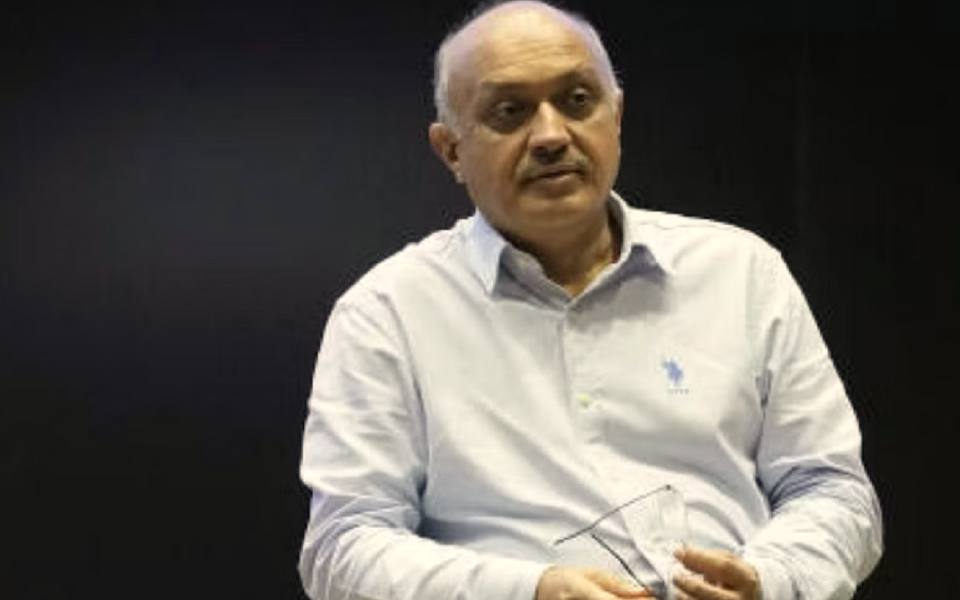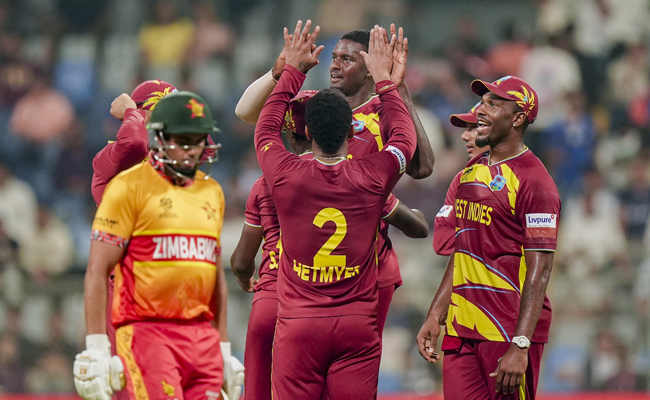New Delhi, Nov 29: In a major setback to the AAP government, the Supreme Court on Wednesday permitted the Centre to extend the tenure of Delhi Chief Secretary Naresh Kumar, a day before he was set to demit office on November 30, for six months, holding that the union government's decision did not violate law or the Constitution.
A bench comprising Chief Justice D Y Chandrachud and justices J B Pardiwala and Manoj Misra held, prima facie, the Centre has the power to appoint and extend the tenure of the chief secretary of the national capital territory of Delhi as the officer deals with the entire administration including police, public order and land, which fall beyond the legislative and executive powers of the Delhi government.
"We come to the conclusion that at this stage, bearing in mind the provisions of the judgement of this court in Constitution Bench 2 (2023 judgement on Centre-Delhi government services row) and the subsequent developments which have taken place resulting in the enactment of the amendment to the GNCTD Act 1991, the decision of the Union Government to extend the services of the incumbent chief secretary for a period of six months cannot be construed to be violative of law or the constitutional distribution of powers between the Union and the government of the GNCTD," the bench said in its order.
The bid to extend the tenure of the present chief secretary is the latest bone of contention between the Arvind Kejriwal government and Lieutenant Governor (LG) V K Saxena, who have been involved in a series of run-ins over various issues.
Significantly, the current chief secretary, whose tenure will now be extended, is reportedly not on good terms with the Delhi government owing to allegations against his son in a case related to acquisition of 19 acres by the National Highways Authority of India in 2018 for construction of the Dwarka Expressway.
"It will be farfetched to postulate that the central government is divested of the power to appoint the chief secretary. We clarify that this is on the basis of a prima facie evaluation," the bench said.
It also held that the central government, prima facie, has the power to extend the service of an incumbent chief secretary.
The top court, in its order, referred to the May 11 judgement of a five-judge constitution bench which had held that the Delhi government has legislative and executive powers over administration of services except for public order, police and land. The verdict was touted as a big victory for the AAP government.
The bench also noted the subsequent developments such as promulgation of an ordinance by the Centre that took back full control over services, and the passage of the Government of NCT of Delhi (Amendment) Act 2023 in Parliament.
The bench said the tenure of chief secretaries are normally extended at the recommendation of the state governments concerned, but the position of the top bureaucrat in the Delhi government is distinct.
"The position of the chief secretary of the GNCTD is significantly distinct and that the chief secretary performs executive functions related to subjects which fall within the executive and legislative competence of the GNCTD as well as those which lie outside," it said.
The court noted that the operation of the amended GNCTD Act, whose validity is under challenge before a constitution bench, has not been stayed and hence, the Centre has the power to appoint a new chief secretary or extend the tenure of the incumbent officer.
The bench noted the submission of the Centre which said the LG may act in his sole discretion without the aid and advice of the city government while dealing with matters pertaining to police, public order and land which are not under the Delhi government.
"The LG is bound by the aid and advice of the council of Ministers of the GNCTD (the government of national capital territory of Delhi) in relation to matters which fall within the legislative and executive domain of the GNCTD," it said.
The bench also noted that the Delhi government cannot have a role in appointment of the Commissioner of Police, secretaries who are in charge of home and land departments, and in such cases, the LG has to make a prior reference to the Union government.
"The chief secretary has in addition been brought within the purview of LG for the simple reason that the chief secretary of the GNCTD exercises overall supervision and control over all the departments including the departments which are relatable to the excluded subjects," it said.
The bench dealt with the relevant amended provision of the Delhi law and said section 45 excludes all officers from the Grade A list, which deals with police, public order and land, and hence, the Delhi government has no role in their appointment.
"The Act defines the chief secretary to mean the chief secretary of the GNCTD appointed by the central government'," it said, adding, whether the provision was "purely a definition section" or gives power to appoint will be dealt with later.
"It would be suffice to note that there can be no dispute about the basic position that the chief secretary is head and as the head of the administration exercises jurisdiction and administers over subjects which fall within the domain of the executive functions of the GNCTD and they also include the subjects police, public order and land," the court said.
The bench clarified that its analysis was "confined" to the present stage and it did not enter into "any conclusive determination of the issues which are pending adjudication before the Constitution bench".
Let the Truth be known. If you read VB and like VB, please be a VB Supporter and Help us deliver the Truth to one and all.
Ranchi (PTI): An air ambulance with seven people onboard to Delhi from Ranchi crashed near Simaria in Jharkhand's Chatra district on Monday, Ranchi airport Director Vinod Kumar said.
There was no immediate confirmation about casualties.
The crash occurred after the air ambulance took off from Ranchi airport at about 7.10 pm, the official said.
"An air ambulance from Ranchi with seven people onboard crashed near Simaria in Chatra district. The report of the crash was received from the state administration," Airport Director Kumar told PTI.
The ambulance had lost contact with air traffic control around 20 minutes after takeoff.
The DGCA in a statement said, "On 23.02.2026 Redbird Airways Pvt Ltd Beechcraft C90 aircraft VT-AJV operating medical evacuation (Air Ambulance) flight on sector Ranchi-Delhi crashed in Kasaria Panchayat of Chatra district, in Jharkhand."
There were seven people on board, including two crew members.
"The aircraft was airborne from Ranchi at 19:11 IST. After establishing contact with Kolkata at19:34 IST, aircraft lost communication and RADAR contact with Kolkata at approximately 100 NM South-East of Varanasi," it added.
The district administration's search and rescue team is at the location, and an Aircraft Accident Investigation Bureau (AAIB) team is being dispatched for investigation, the statement said.
Chatra Deputy Commissioner Keerthishree G told PTI, "The aircraft went missing around 7.30 pm. It crashed at Bariatu Panchayat in Simaria."
The DC said she cannot confirm the casualties right now, as the place of occurrence is deep in the forest.
"A team has been sent. We can confirm when the team reaches there," she added.





